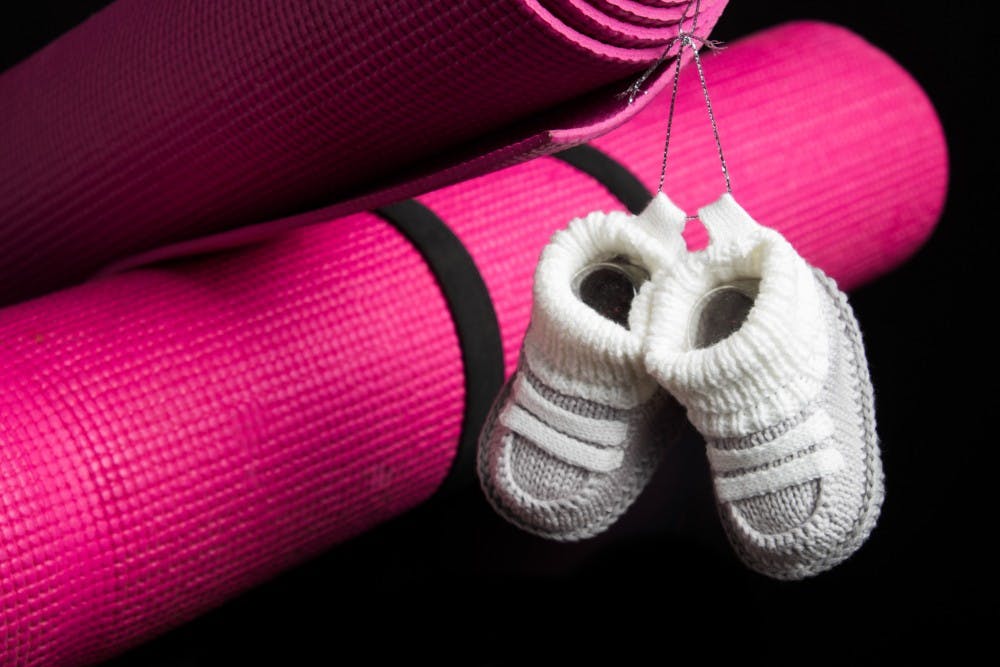 (Photo Illustration by Andrew Ybanez)
(Photo Illustration by Andrew Ybanez)
Any mother who has experienced the loss of a child knows the suffering that comes with the loss is truly unbearable.
After Jennifer Huberty gave birth to a stillborn daughter several years ago, she decided to use her healing process through yoga to assist other mothers with their loss.
Huberty, an associate professor at ASU’s School of Nutrition and Health Promotion, created a perinatal loss study that would allow women who have experienced the death of a child shortly after birth to attempt to heal by means of yoga.
“Four years ago, I had a stillborn daughter, Raine Madilynne Huberty,” Huberty said in an email. “I used yoga to help me cope with the loss of my daughter, and it has completely changed the way I look at life.”
Yoga offered Huberty peace through the tough times and she wanted to see if her experience could assist other mothers as well.
“It has helped me to be present, enjoy the moment and be content no matter the circumstances,” Huberty said. “I thought that maybe this could help other mothers, especially considering there are no programs for women after they have a stillbirth, despite (the fact that there are) 26,000 stillbirths a year.”
In her inspiration for developing her study, Huberty discovered there is little research on women who suffer from post-traumatic stress disorder after experiencing a stillbirth. Mayo Clinic defines PTSD as a mental health condition triggered by experiencing or witnessing a terrifying event.
“There is little to no research about using yoga to improve PTSD in women who have experienced stillbirth,” Huberty said. “And women who have had a stillbirth are three to six times as likely to have PTSD than women who have healthy, live births. So, we wanted to do the study to see if this helps women after stillbirth.”
Huberty partnered with Jeni Matthews, a research technician for ASU’s School of Nutrition and Health Promotion to develop the study, which involved an hour of yoga practice per week for 12 weeks.
“We ask that participants engage in 60 minutes of online streaming yoga following an ASU-prescribed yoga program designed by myself and Dr. Huberty,” Matthews said in an email. “The program is set up as 20 minutes, three times per week, but women have the flexibility to choose how they want to complete their 60 minutes.”
Soon after, Huberty and Matthews were able to team up with Udaya, an online yoga studio taught by professional yoga teachers, to provide their participants with a complimentary and private yoga experience.
Jules Mitchell, a yoga therapist with Udaya, was the yoga expert on the study. Mitchell has consulted with Huberty and Matthews as to the background of their research as well as the particulars of the regular yoga practice.
“Yoga is effective as a means to cope with (PTSD),” Mitchell said in an email. “Yoga may reduce fear, improve relaxation and promote equanimity. It is suggested that yoga decreases sympathetic activity and increases the parasympathetic response. Yoga may help one to regulate her emotions and inspire compassion for herself and for others.”
For women who have experienced a stillbirth within the last two years and are currently not actively practicing yoga but would like to, Huberty and Matthews are still recruiting participants.
Reach the reporter at Jlsuerth@asu.edu or follow @SuerthJessica on Twitter.
Like The State Press on Facebook and follow @statepress on Twitter.




